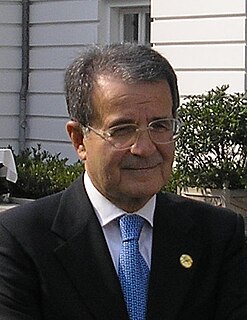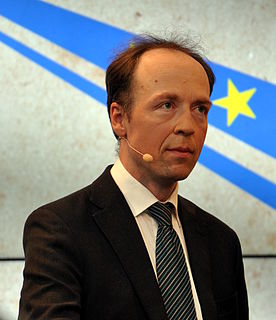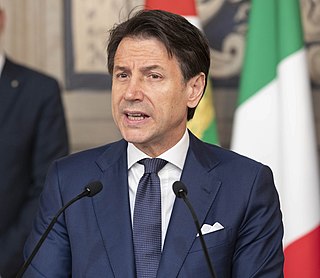 W
WIn 2005 and 2006, a series of events occurred in Thailand as a result of an unrest with Thaksin Shinawatra that was supported by Sondhi Limthongkul and his coalitions. It led a military coup that concluded in the overthrow of the Thai Rak Thai government in September 2006, the flight of Thaksin after the court verdict, and the establishment of the junta government led by Surayud Chulanont, a favourite of privy councillor and senior statesman Prem Tinsulanonda.
 W
WA political crisis began in Zimbabwe on 11 March 2007 when opposition leader Morgan Tsvangirai was beaten and tortured after being arrested, prompting widespread domestic and international criticism.14 March: Two female officers were seriously injured in a fire-bomb attack on a police station in Harare; the government blamed the opposition Movement for Democratic Change (MDC). Similar attacks and other forms of protest took place in other parts of the country. 15 March: President Robert Mugabe made a statement about Western criticism of his regime: "When they criticise the government when it tries to prevent violence and punish perpetrators of that violence we take the position that they can go hang." 17 March: Four ranking members of the opposition were refused permission to leave the country, some of them seeking treatment for injuries inflicted in police custody. MP Nelson Chamisa said he was beaten at Harare Airport; doctors later reported that he had received a fractured skull. 21 March: Levy Mwanawasa, president of neighbouring Zambia, likened the situation in Zimbabwe "to a sinking Titanic whose passengers are jumping out in a bid to save their lives". 21 March: The United States Ambassador to Zimbabwe, Christopher Dell, said that the country's people had "turned a corner" and were "losing their fear". 22 March: The Roman Catholic Archbishop of Bulawayo, Pius Ncube, called for mass public protests to bring pressure to bear on President Robert Mugabe to resign. 23 March: The Prime Minister of Australia John Howard called for the world to work towards ousting Mugabe. 28 March: Morgan Tsvangirai was arrested in a raid on his headquarters. 29 March: The Southern African Development Community held a summit in Tanzania, with the Zimbabwe crisis high on its agenda. 8 April: Zimbabwe's Roman Catholic bishops call on the President of Zimbabwe Robert Mugabe to stand down or face "open revolt" in a message posted on church bulletin boards across the country.
 W
WOn 24 January 2008 Prime Minister of Italy Romano Prodi lost a vote of confidence in the Senate by a vote of 161 to 156 votes, causing the downfall of his government. Prodi's resignation led President Giorgio Napolitano to request the president of the Senate, Franco Marini, to assess the possibility to form a caretaker government. The other possibility would have been to call for early elections immediately. Marini acknowledged impossibility to form an interim government due to the unavailability of the centre-right parties, and early elections were scheduled for 13 April and 14 April 2008.
 W
WBeginning in 2008, there was worsening conflict between the People's Alliance for Democracy (PAD) and the People's Power Party (PPP) governments of Prime Ministers Samak Sundaravej and Somchai Wongsawat. It was a continuation of the 2005–2006 political crisis, when PAD protested against the Thai Rak Thai (TRT) party government of Prime Minister Thaksin Shinawatra. PAD followers usually dressed in yellow, yellow being the royal color of King Bhumibol Adulyadej, and were called "yellow shirts". National United Front of Democracy Against Dictatorship (UDD) followers, known as supporters of the deposed prime minister Thaksin Shinawatra, dressed in red and were widely called "red shirts".
 W
WThe 2013 Czech political corruption scandal started with a raid against organized crime which was conducted in the Czech Republic in June 2013 by the Police Unit for Combating Organized Crime and the Chief Public Prosecutor's Office in Olomouc. It involved several highly positioned state officers and politicians, as well as controversial entrepreneurs and lobbyists. The scandal affected the top levels of Czech politics, including Prime Minister Petr Nečas and his coalition government. On 17 June 2013, it resulted in the resignation of the Prime Minister and the cabinet. Nečas also quit as leader of the Civic Democratic Party (ODS).
 W
WThe 2013–2014 Thai political crisis was a period of political instability in Thailand. Anti-government protests took place between November 2013 and May 2014, organised by the People's Democratic Reform Committee (PDRC), a political pressure group led by former Democrat Party parliamentary representative (MP) Suthep Thaugsuban. The crisis eventually resulted in the removal of incumbent Prime Minister Yingluck Shinawatra, a coup d'état, and the establishment of a military junta.
 W
WThe 2014 Swedish government crisis started on 3 December 2014 after the Riksdag rejected the proposed government budget in favour of a budget proposed by the centre-right opposition.
 W
WThe 2017 Finnish government crisis followed the Finns Party leadership election held on 10 June 2017. Prime Minister Juha Sipilä and Minister of Finance Petteri Orpo announced on 12 June that they would no longer cooperate in a coalition government with the Finns Party after Jussi Halla-aho was elected party chairman. The crisis resolved on 13 June when twenty MPs defected from the Finns Party's parliamentary group, forming what would eventually become the Blue Reform party. Sipilä's government retained a majority in Finland's parliament as the Blue Reform continued as a member of the coalition.
 W
WThe Virginia political crisis of 2019 occurred when all three of Virginia's statewide elected executive officials became engulfed in scandal over the course of one week in February 2019. All three were consequently the subjects of nation-wide bipartisan calls for resignation or removal from office. The crisis started when a photo of Governor Ralph Northam's page in his 1984 medical school yearbook depicted an individual in blackface and an individual in a Ku Klux Klan outfit. Northam had sparked a national outcry two days earlier over comments interpreted by conservatives and pro-life groups as supporting infanticide. Amid widespread calls for Northam's resignation, Lieutenant Governor Justin Fairfax had multiple sexual assault allegations raised against him dating to 2000 and 2004. Attorney General Mark Herring revealed shortly thereafter that he had also worn blackface while in college.
 W
WThe 2020–21 Malaysian political crisis, commonly nicknamed as the Sheraton Move, is an ongoing political crisis in Malaysia that has led to the appointment of Muhyiddin Yassin as the 8th prime minister. It also oversaw the ousting of the coalition government of Pakatan Harapan after having ruled the nation for 22 months following their unprecedented victory in the 2018 Malaysian general election.
 W
WThe Congo Crisis was a period of political upheaval and conflict in the Republic of the Congo between 1960 and 1965. The crisis began almost immediately after the Congo became independent from Belgium and ended, unofficially, with the entire country under the rule of Joseph-Désiré Mobutu. Constituting a series of civil wars, the Congo Crisis was also a proxy conflict in the Cold War, in which the Soviet Union and the United States supported opposing factions. Around 100,000 people are believed to have been killed during the crisis.
 W
WThe May 1958 crisis was a political crisis in France during the turmoil of the Algerian War of Independence (1954–62) which led to the collapse of the Fourth Republic and its replacement by the Fifth Republic led by Charles de Gaulle who returned to power after a twelve-year absence. It started as a political uprising in Algiers on 13 May 1958 and then became a military coup d'état led by a coalition headed by Algiers deputy and reserve airborne officer Pierre Lagaillarde, French Generals Raoul Salan, Edmond Jouhaud, Jean Gracieux, and Jacques Massu, and by Admiral Philippe Auboyneau, commander of the Mediterranean fleet. The coup was supported by former Algerian Governor General Jacques Soustelle and his activist allies.
 W
WThe 2021 Italian government crisis was a political event in Italy that began in January 2021 and ended the following month. It includes the events that follow the announcement of Matteo Renzi, leader of Italia Viva (IV) and former Prime Minister, that he would revoke IV's support to the government of Giuseppe Conte.
 W
WThe 2019 Italian government crisis was a political event in Italy that occurred between August and September 2019. It includes the events that follow the announcement of the Minister of the Interior and leader of the League, Matteo Salvini, that he would revoke League's support of the cabinet and ask the President of the Republic to call a snap election. This provoked the resignation of Prime Minister Giuseppe Conte, and resulted in the formation of a new cabinet led by Conte himself.
 W
WThe cabinet crisis of 1964 in Malawi occurred in August and September 1964 shortly after independence when, after an unresolved confrontation between the Prime Minister, Hastings Banda and the cabinet ministers present on 26 August 1964, three ministers and a parliamentary secretary were dismissed on 7 September. These dismissals were followed by the resignations of three more cabinet ministers and another parliamentary secretary, in sympathy with those dismissed. Initially, this only left the President and one other minister in post, although one of those who had resigned rescinded his resignation within a few hours. The reasons that the ex-ministers put forward for the confrontation and subsequent resignations were the autocratic attitude of Banda, who failed to consult other ministers and kept power in his own hands, his insistence on maintaining diplomatic relations with South Africa and Portugal and a number of domestic austerity measures. It is unclear whether the former ministers intended to remove Banda entirely, to reduce his role to that of a non-executive figurehead or simply to force him to recognise collective cabinet responsibility. Banda seized the initiative, firstly, by dismissing some of the dissidents rather than negotiating, and secondly, by holding a debate on a motion of confidence on 8 and 9 September 1964. As the result of the debate was an overwhelming vote of confidence, Banda declined to reinstate any of the ministers or offer them any other posts, despite the urging of the Governor-General to compromise. After some unrest, and clashes between supporters of the ex-ministers and of Banda, most of the former left Malawi in October with their families and leading supporters, for Zambia or Tanzania. One ex-minister, Henry Chipembere went into hiding inside Malawi and, in February 1965 led a small, unsuccessful armed uprising. After its failure, he was able to arrange for his transfer to the USA. Another ex-minister, Yatuta Chisiza, organised an even smaller incursion from Mozambique in 1967, in which he was killed. Several of the former ministers died in exile or, in the case of Orton Chirwa in a Malawian jail, but some survived to return to Malawi after Banda was deposed and to return to public life.
 W
WA political crisis in Montenegro was initiated by the opposition parties which staged protests requesting fair elections and transitional government. Opposition coalition Democratic Front organised continuous protests in October 2015 which culminated in a large riot in Podgorica on 24 October. A split in the ruling coalition followed in January 2016, leaving the government functioning as a de facto minority government.
 W
WThe Polish Sejm crisis, 16 December 2016—12 January 2017, was a period of political stalemate in Poland's national legislature, resulting from an attempt to limit freedom of the press at the Sejm buildings in Warsaw, Poland. The attempt to restrict press access to Sejm members and deliberations led to protests by opposition-party Sejm members, and by citizens of Poland's major cities, including Warsaw.
 W
WThe 2012–2015 unrest in Romania refers to a prolonged period of civil unrest and political scandals in Romania, which took magnitude after the second half of the 2000s. The wave of civil demonstrations started in January 2012, once with the introduction of a new health reform legislation. The protests were fueled by the austerity measures applied in May 2010, but also by the unpopularity of Băsescu-backed Boc government. The demonstrations were characterized by widespread rioting and acts of vandalism. The political situation precipitated, so Prime Minister Emil Boc decided to step down on 6 February 2012.
 W
WThe Royal Question was a major political crisis in Belgium that lasted from 1945 to 1951, coming to a head between March and August 1950. The "question" at stake surrounded whether King Leopold III could return to the country and resume his constitutional role amid allegations that his actions during World War II had been contrary to the provisions of the Belgian Constitution. It was eventually resolved by the abdication of Leopold in favour of his son Baudouin in 1951.
 W
WThe government crisis in Thuringia was triggered by the election of Thomas Kemmerich (FDP) as Thuringian Minister President with votes from the AfD, CDU and FDP on 5 February 2020. The election attracted considerable national and international attention because, for the first time in the history of the Federal Republic of Germany, a Minister President was elected with votes from a far-right populist party, in this case the AfD.
 W
WIn May 1940, during the Second World War, the British war cabinet was split on the question of whether to make terms with Nazi Germany or to continue hostilities. The main protagonists were the prime minister, Winston Churchill, and the foreign secretary, Viscount Halifax. The dispute escalated to crisis point and threatened the continuity of the Churchill government.
 W
WThe Watergate scandal was a political scandal in the United States involving the administration of U.S. President Richard Nixon from 1971 to 1974 that led to Nixon's resignation. The scandal stemmed from the Nixon administration's continuous attempts to cover up its involvement in the June 17, 1972 break-in of the Democratic National Committee headquarters at the Washington, D.C. Watergate Office Building. After the five perpetrators were arrested, the press and the U.S. Justice Department connected the cash found on them at the time to the Nixon re-election campaign committee. Further investigations, along with revelations during subsequent trials of the burglars, led the U.S. House of Representatives to grant its judiciary committee additional investigation authority to probe into "certain matters within its jurisdiction", and the U.S. Senate to create a special investigative committee. The resulting Senate Watergate hearings were broadcast "gavel-to-gavel" nationwide by PBS and aroused public interest. Witnesses testified that the president had approved plans to cover up administration involvement in the break-in, and that there was a voice-activated taping system in the Oval Office. Throughout the investigation, the administration resisted its probes, which led to a constitutional crisis.
 W
WThe Westland affair in 1985–86 was an episode in which Margaret Thatcher, Prime Minister of the United Kingdom, and her Secretary of State for Defence, Michael Heseltine, went public over a cabinet dispute with questions raised about whether the conventions of cabinet government were being observed and about the integrity of senior politicians.